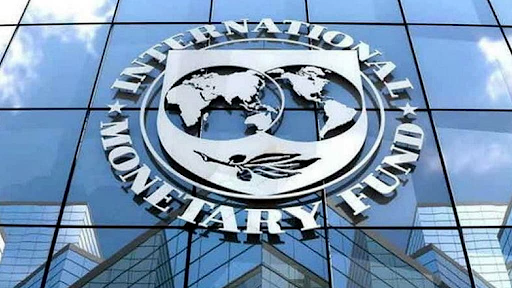

The International Monetary Fund has predicted a fiscal crisis in Kenya, saying low
revenue and export underperformances are increasing debt vulnerabilities.
The fund issued this caveat when its board finally approved the long-delayed $606 million (Sh78.2 billion) loan for Kenya.
It had postponed the decision following bloody anti-government protests against the Finance Bill, 2023 in June.
The Bill was withdrawn.
“The Kenyan authorities face a difficult balancing act of boosting domestic revenues to protect critical spending in priority areas, while meeting heavy debt service obligations,” the fund said in a statement released on Wednesday.
It said delivering on this balancing act would require improving governance and transparency to restore public trust that public resources were effectively and prudently used.
“In this context, a difficult adjustment path lies ahead. A credible fiscal consolidation strategy remains central to addressing debt vulnerabilities while protecting social and development spending,” the IMF statement read.
Kenya is faced with a high loan obligation, with the total public debt currently estimated at Sh10.6 trillion, with external loans amounting to Sh5.4 trillion.
So high is the country’s public debt that servicing it accounted for 69.6 per cent of domestic revenues as of June 2024.
This is more than double the recommended limit of 30 per cent. Kenya’s debt has risen tremendously since 2012 when President William Ruto and his predecessor, Uhuru Kenyatta, took power in 2012.
Official data from the National Treasury shows that Kenya’s debt was at Sh1.89 trillion by the end of the 2012-13 financial year but rose to Sh7.17 trillion by the time Uhu- ru exited power after his two-term stint at the House on the Hill.
This means Ruto’s administration has borrowed close to Sh3.4 trillion in just two years.
The international lender wants President William Ruto’s government to institute reforms to make the tax regime more efficient, equitable and progressive, and to strengthen accountability, transparency and efficiency of public finances.
“This will help in garnering po- litical and societal support for re- forms. Communicating the necessity and benefits of the reforms is paramount,” the IMF said.
The IMF warning of trouble comes as Ruto is facing heavy public criticism and almost all his policies on health, housing and infrastructure funding are widely opposed.
“Given the elevated risks around the fiscal strategy, policymaking needs to be agile. Contingency planning remains critical, with policies adapting to evolving outcomes to safeguard stability and ensure that programme objectives continue to be met,” the international lender said.
Even so, despite a difficult socio-economic environment, the fund said Kenya’s economy remains resilient, with growth above the regional average, inflation decelerating and external inflows supporting the shilling and a build-up of external buffers.
The IMF said the resolution of the exceptional external financing pressure earlier this year has revived market confidence, aided the stabilisation of the shilling and enabled a faster build-up of foreign exchange reserves.
Release of the funds follows the seventh and the eighth reviews under the extended arrangement of the Extended Fund Facility and the arrangement under the Extended Credit Facility, approved in April 2021.
It also follows a review under the Resilience and Sustainability Facility arrangement approved in July 2023, with Kenya.
The decision allows for the immediate disbursements of $485.8 million ($62.6 billion) under the EFF/ECF arrangements and about $120.3 million (Sh15.5 billion) un- der the RSF arrangement.
In addition, following the resolution of exceptional financing
needs earlier this year, the board
approved a reduction in the total
access under the EFF/ECF arrangements from exceptional access, approved in January 2024.



![[PHOTOS] Kindiki inspects works at regional centre in Kwale](/_next/image?url=https%3A%2F%2Fcdn.radioafrica.digital%2Fimage%2F2025%2F04%2Fc68aa00b-39bc-4214-bafe-80e8e38b1e60.jpg&w=3840&q=100)









